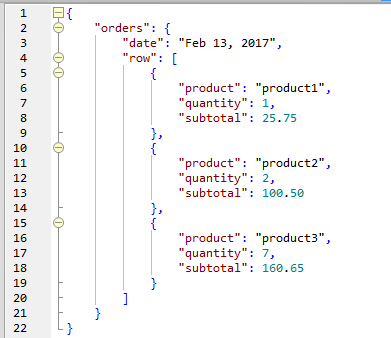

- #Convert graphql query to json online how to
- #Convert graphql query to json online install
- #Convert graphql query to json online code
ExposeData when enabled sets the extension's data property to equal the data within the error'sĭata property.That has an inner exception of type ArgumentNullException would contain a codes property
#Convert graphql query to json online code
So an ExecutionError with a code of INVALID_FORMAT UPPER_CASE and removing the "Extension" suffix). The error's Code property, if any, and the type name of inner exceptions (after being converted to ExposeCodes when enabled sets the extensions's codes property to equal a list containing both.ExposeCode when enabled sets the extensions's code property to equal the error's Code.ToString() method, which includes a stack trace. ExposeExceptionStackTrace when enabled sets the message property for errors to equal theĮxception's.IErrorInfoProvider) contains 5 properties to control serialization behavior: The ErrorInfoProvider class (default implementation of To the constructor of the document writer. Serialization of ExecutionErrors into the resulting json data by providing an IErrorInfoProvider The GraphQL spec allows for four properties to be returned within eachĮrror: message, locations, path, and extensions. WriteToStringAsync (result ) Error Serialization Within your dependency injection framework, if applicable. This class is designed to be registered as a singleton Handles constructing the options, registering the converter, and serializing a specifiedĮxecutionResult to a data stream. To assist, a DocumentWriter class is provided with a single method, WriteAsync, which The converter can be registered within an instance of JsonSerializerOptions so that serializing anĮxecutionResult produces the proper output.

Serialization of a ExecutionResult object is handled by ExecutionResultJsonConverter which accepts in itsĬonstructor an instance of IErrorInfoProvider (see Error Serialization below). A sample of the required configuration is below: Reading and writing of the underlying stream. Significant when hosting the service via ASP.NET Core, as it is required to deliberately allow synchronous Helper actually performs synchronous calls on the underlying stream when writing the JSON output. Due to this reason, the async GraphQL.NewtonsoftJson serialization Serialization or deserialization methods. First, the Newtonsoft.Json library does not provide asynchronous There are two notableĭifferences between the two serialization engines. These two projects have very similar classes and extension methods available. GraphQL.NewtonsoftJson, for use with the Newtonsoft.Json library.GraphQL.SystemTextJson, for use with the library, and.Request or response format, but it is common to do so. I am presuming I can swap out the endpoint to /admin/api/2022-10/deprecated_api_calls.Two libraries are available for assistance deserializing JSON-formatted GraphQL requests,Īnd serializing GraphQL responses in a JSON format. $delivery_profile_gid = $response_array->data->productVariant->deliveryProfile->id I have tested the query in Shopify's Graphql explorer. $response_array = json_decode($curl_response) Solved: Hi, I can't get products using Graphql (I'm always getting a 404), but I can get them using the REST API. $querty_alt = 'query ' Ĭurl_setopt($curl, CURLOPT_CUSTOMREQUEST, "POST") Ĭurl_setopt($curl, CURLOPT_POSTFIELDS, $post_data) Ĭurl_setopt($curl, CURLOPT_RETURNTRANSFER, true) Ĭurl_setopt($curl, CURLOPT_HTTPHEADER, array('Content-Type: application/json')) $our_endpoint = curl_init($our_endpoint) Here is a simplified version of my code for connecting to GraphQL:

I only have basic understanding of how this works.
#Convert graphql query to json online how to
Just to clarify, what I mean is I do not know how to query the deprecated_api_calls.json API.

The app is actually fairly straight forward, aside from the lines of PHP related to CURL there are only 2 queries which are called depending on a parameter that is sent to the app.
#Convert graphql query to json online install
If so does anyone know how I convert my private app to a custom app quickly? I went down the Private App path as someone had suggested it was easier to install than a custom app. Īs my app is a private app does this mean that it will just stop working on January 1st as per the warning? The only additional information I can see is that it has a link to "Unsupported custom apps". This seemed to make the warning disappear for a day or two but not it seems to be back and now I am concerned that what needs done next it rather more substantial. I went into my code and changed the API endpoint from /admin/api/2020-04/graphql.json to /admin/api/2022-10/graphql.json This app is now being flagged as per the warning in my subject line. A couple of years back I managed to cobble together a private app that gets and/or sets delivery profiles for products.


 0 kommentar(er)
0 kommentar(er)
